Subscribe to the newsletters and receive our message in your email
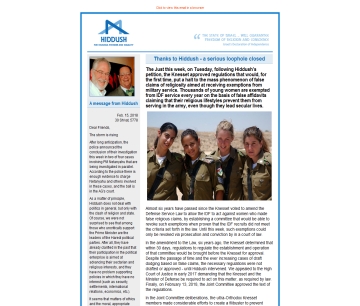
The Just this week, on Tuesday, following Hiddush's petition, the Knesset approved regulations that would, for the first time, put a halt to the mass phenomenon of false claims of religiosity aimed at receiving exemptions from military service.
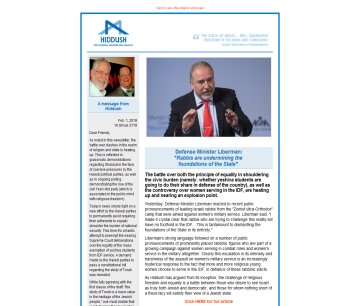
Defense Minister Liberman reacted to recent public pronouncements of leading Israeli rabbis from the "Zionist ultra-Orthodox" camp that were aimed against women's military service.
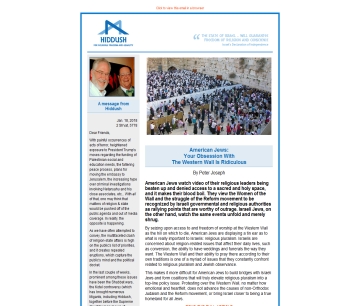
At this time, we want to share with you an important exposition of the debate over the place of the Kotel controversy in the American Jewish public discourse and American Jewry's efforts at influencing Israeli policies.
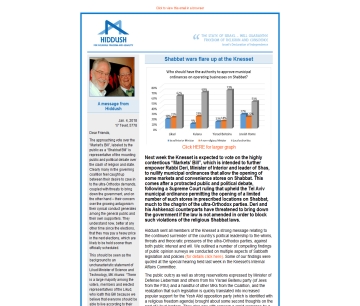
The approaching vote over the “Market’s Bill”, labeled by the public as a “Shabbat Bill” is representative of the mounting public and political debate over the clash of religion and state.

Six years after the enactment of an amendment to the Security Service Law to establish a process for revoking thousands of women's exemptions for falsely claiming to having religious lifestyles that conflict with IDF service, the law has remained a dead letter. The prerequisite regulations have not been enacted, and the amendment could not be implemented.
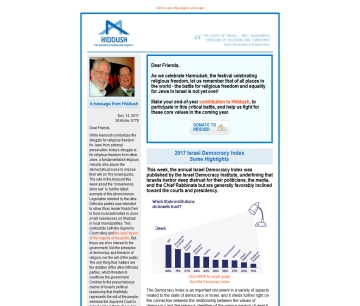
This week, the annual Israel Democracy Index was published by the Israel Democracy Institute, underlining that Israelis harbor deep distrust for their politicians, the media, and the Chief Rabbinate but are generally favorably inclined toward the courts and presidency.
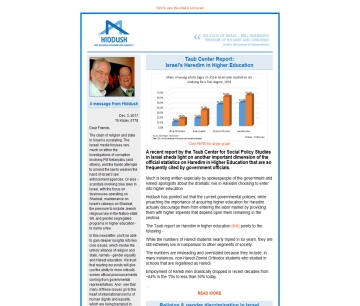
A recent report by the Taub Center for Social Policy Studies in Israel sheds light on another important dimension of the official statistics on Haredim in Higher Education that are so frequently cited by government officials.
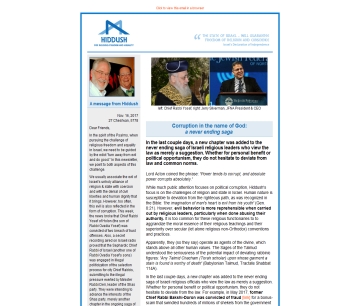
In the last couple days, a new chapter was added to the never ending saga of Israeli religious leaders who view the law as merely a suggestion. Whether for personal benefit or political opportunism, they do not hesitate to deviate from law and common norms.
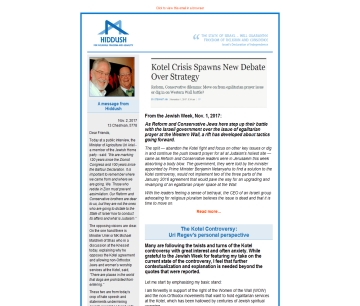
Many are following the twists and turns of the Kotel controversy with great interest and often anxiety. While grateful to the Jewish Week for featuring my take on the current state of the controversy, Uri feel that further contextualization is needed.
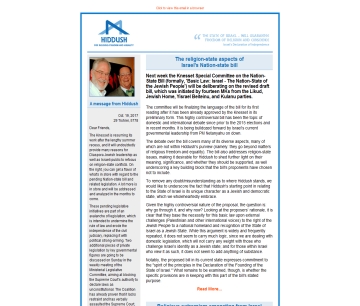
Next week the Knesset Special Committee on the Nation-State Bill (formally, 'Basic Law: Israel - The Nation-State of the Jewish People') will be deliberating on the revised draft bill, which was initiated by fourteen MKs from the Likud, Jewish Home, Yisrael Beiteinu, and Kulanu parties.
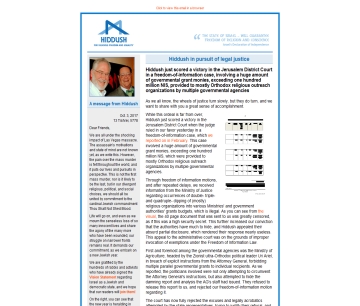
Hiddush just scored a victory in the Jerusalem District Court in a freedom-of-information case, involving a huge amount of governmental grant monies, exceeding one hundred million NIS, provided to mostly Orthodox religious outreach organizations
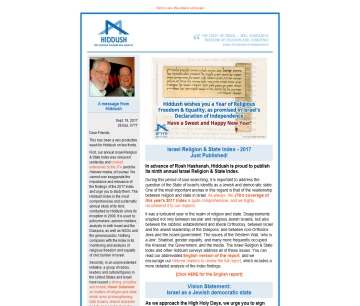
This has been a very productive week for Hiddush on two fronts: The 2017 Israel Religion & State Index, and the Vision State for a Jewish democratic statement, written by Rabbis Marc Angel and Uri Regev.
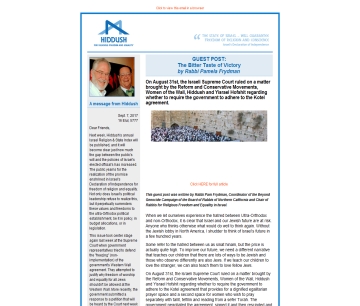
On August 31st, the Israeli Supreme Court ruled on a matter brought by the Reform and Conservative Movements, Women of the Wall, Hiddush and Yisrael Hofshit regarding whether to require the government to adhere to the Kotel agreement.
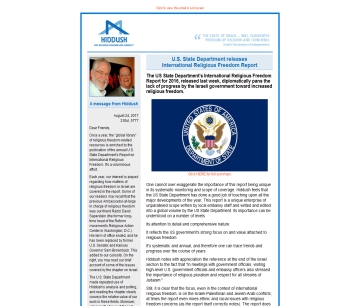
The US State Department’s International Religious Freedom Report for 2016, released last week, diplomatically pans the lack of progress by the Israeli government toward increased religious freedom.
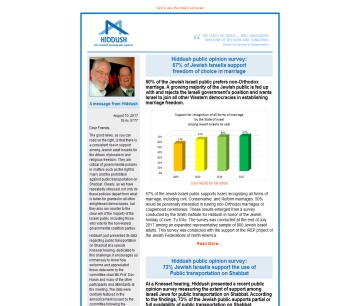
We turn back to addressing one of the key manifestations of the unholy link between religion and the economy. This time, it follows on the publication of a review by the Ministry of Finance's Chief Economist department, according to which increasing participation in the workforce among ultra-Orthodox Jews and Arabs will reduce the poverty level in Israel by 21%.